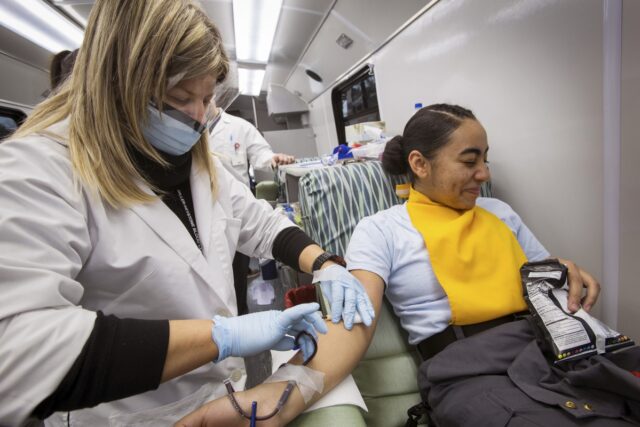
Special promotional content provided by UnityPoint Health Meriter.
Certain health conditions affect Black communities at higher rates than other racial groups. For example, national and local data shows heart disease, cancer, maternal complications and sickle cell disease disproportionately impact Black individuals.
Prevention is important when navigating high-risk health conditions, such as leading a healthy lifestyle and getting yearly and routine exams, but inclusive care also plays a big part in ensuring communities with diverse patient populations have access to resources that result in high-quality, safe and accessible care.
Several UnityPoint Health physicians weigh in on Sickle Cell Disease, preventative measures to reduce the risk of serious illnesses and community partnerships that support better health outcomes for Black patients.
Sickle cell disease (SCD) is a serious, life-long disease that requires daily care. It’s more common in people of African descent. The disease changes the way hemoglobin – a protein in the red blood cells that carries oxygen – is made.
Because it’s a genetic condition that can be inherited from a parent, a primary care doctor will typically test a newborn to see whether their parent carries the gene.
While the life expectancy for someone with SCD has steadily improved with proper care and treatment, it can cause serious health problems, long-term disability or life-threatening complications if left untreated. Additionally, it is beneficial for those who live with SCD to have a healthcare team (primary, hematologist, pulmonologist, cardiologist, nephologist, ophthalmologist, psychologist and social worker) to help manage the health disparities that cause chronic conditions.
Visit UnityPoint Health to find a UnityPoint Health doctor near you.
UnityPoint Health – Meriter is partnering with the DivineNine sororities and fraternities to promote blood donation, especially in the Black community, as blood transfusion is one of the most critical treatments for Sickle Cell Disease.
To support those who live with Sickle Cell Disease, you can donate at an upcoming blood drive, June 17 at Urban League of Greater Madison, starting at 9 a.m., or 9 a.m. Sept. 23 also at Urban League of Greater Madison. If you would like to sign up to donate blood, make an appointment at https://www.redcrossblood.org/give.html/drive-results?zipSponsor=MadisonSickleCell.
If you are unable to donate at these upcoming blood drives, but are interested in donating in the future, find other local blood drives here: https://www.redcrossblood.org/give.html/find-drive



























